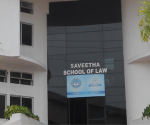Schools come under lens as teachers turn predators – The Times of India

A Ragu Raman and Preetika P / TNN
Chennai: Until some time ago, parents fretted about their children returning home from school safely. But now, the confines of a school seem more menacing. In less than a week, three incidents of sexual offences in schools, including one in a private school in Chennai, came to light. Three teachers raped a Class VIII student in Krishnagiri district, while a teacher abused several children from a tribal welfare residential school in Salem. The third incident pertained to police arresting a private school teacher in Chennai for abusing a Class IX boy.
According to school education minister Anbil Mahesh Poyyamozhi, 238 Pocso cases were registered concerning incidents in govt, govt-aided, and private schools in the past ten years. While 15 teachers charged with the offence were dismissed from service, disciplinary action was at various levels in 104 cases.
Activists opine the increase in reporting of sexual abuse cases by school children is a positive sign as it points to growing awareness. They demand that teachers be screened before appointment, safety audits of toilets and campuses conducted, and a counsellor appointed to each school to prevent harassment.
Noting that the rise in such crimes would have far-reaching consequences, A Devaneyan, a child rights activist, said it would lead to girl children dropping out of schools in rural districts such as Krishnagiri. We need a child protection policy in schools with dos and don’ts chalked out for all staff. “GO 121 issued in 2012 empowers authorities to cancel the educational qualification of teachers involved in sexual offences. However, not a single teacher’s qualification has been revoked so far. Many of these teachers were repeat offenders,” he added.
R Vidyasagar, former child protection specialist with Unicef, said creating awareness and giving life skill education to all students is the key. “Arresting teachers is not enough. Life skill education will empower students,” Vidyasagar said.
Centre for Child Rights and Development director Stegna Jency L T said that in addition to installing complaint boxes, safe toilet spaces should be ensured in schools. Teacher associations have also condemned the recent incidents. “The govt should organise a session for teachers on penal actions for such offences,” said P Patric Raymond, general secretary, Tamil Nadu Graduate Teachers Federation. School education director S Kannappan underscored the formation of Student Safeguarding Advisory Committees (SSAC) in schools.
Sangeetha C, a psychiatrist from SCARF, said awareness programmes should target not just students, but also their parents, many of whom are unaware of legal reforms. “Schools should not ignore complaints to protect their reputation. School management committees must organise workshops to raise awareness about different types of harassment. Teachers also need training to identify signs of distress or behavioural changes in students,” she said.
















